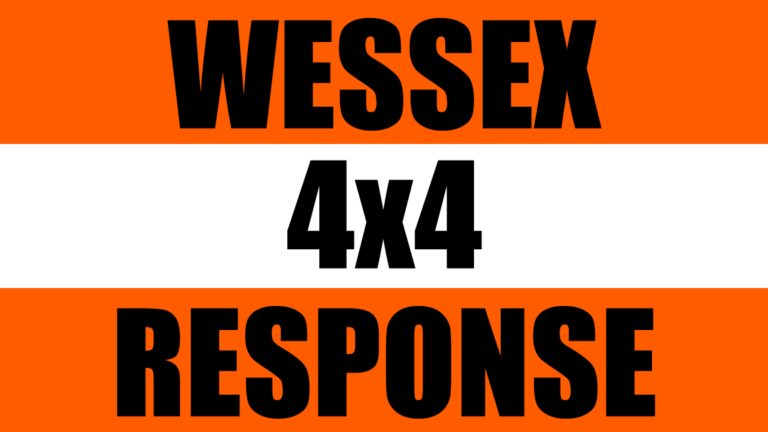For incidents, we typically operate in one of two modes
- Normal business. Any organisation (typically public sector or related) can call and request our help during an emergency. Details of how to call us are below.
- Major incident. If there is a major incident, the LRF will bring together the management of all the available assets into one place. This is often known as a transport cell, or in the winter a snowdesk. You may be asked to redirect your request to them so that all the requests can be triaged for priority across the whole LRF. Your route to the LRF transport desk is likely to be via your emergency planning officer. If you are not a public sector organisation, but are commissioned by one, then reach out to them to understand how that would work in your case.
Charging for our services
We do make a modest charge for our services. This is made up of two parts :-
- Mileage at 45ppm or actual cost of fuel (such as during slow speed driving or heavy towing)
- A “day rate” of £25 per responder shift.
The mileage rate is provided straight to the responder to cover their costs. Their time is donated completely free, but we need to ensure that we cover their costs to ensure that they can afford to continue to volunteer – especially in these tough economic times.
The “day rate” is payable to the organisation, and covers the costs of maintaining our insurance, equipment services, providing PPE to our responders, telephony and all the other bits that go into keeping an organisation running safely. It also helps to ensure we are still available the next time we are needed.
What happens when you call our emergency callout number 07418310004?
- You will be put through to our control voicemail, where you can leave a message.
- Our control team will be paged (if they are not already online) to respond to the message.
- They will either call you back as soon as possible or may get volunteers mobilised first, depending on the nature of the circumstances.
Can we use SMS?
- If you have details that are hard to provide over the phone, then you can also text our control team on the same number – this is especially useful if you have information that might easily be misheard (eg addresses and postcodes). This will also page our control team.
- If you would like to be able to activate us by SMS rather than by voice, then please speak to our liaison team. This can be a real timesaver on both your and our ends.
How we can work together on large deployments
Through many years of experience working with multiple agencies, we have found that the most effective and efficient use of our services is for us to deploy one or more responders to one agency for the period of a shift. As the user agency it is then for you to deploy and use that responder in the most effective way. As well as being significantly more efficient, this removes the need for our control team to know the details of your staff/patients – removing one step in the data protection chain.
For example:
- Rather than a hospital requesting dozens of individual moves, they may ask for 2 responders for a 6 hour period to enable them to move multiple staff members in and out of the hospital. The hospital command centre will then task the responder directly, while W4x4R will continue to monitor their welfare via our command and control system.
- A team of district nurses ask for 2 responders who will ferry the nurses between their calls as all the calls are within one town. Or they may choose to assign one responder to one nurse to the duration of their shift.
This way of working also means that our control team can start to plan for the following days deployments (if required) to ensure all agencies have what they need as they are not needed to manage each individual request.
What we will need from you when you call.
- Organisation details
- Name of the responsible person who has authorised this use, ie ward sister, operations manager or similar
- A clear description of your need including times and number of vehicles needed.
- Location(s)
- Contact details that we can call you back on now. If the deployment is likely to continue over multiple days (eg due to bad weather) we may ask you for the contact details of the next shift manager if appropriate.
- Confirmation that you understand that we have to charge to cover our operating costs, and that you are authorised to approve this for your organisation.
